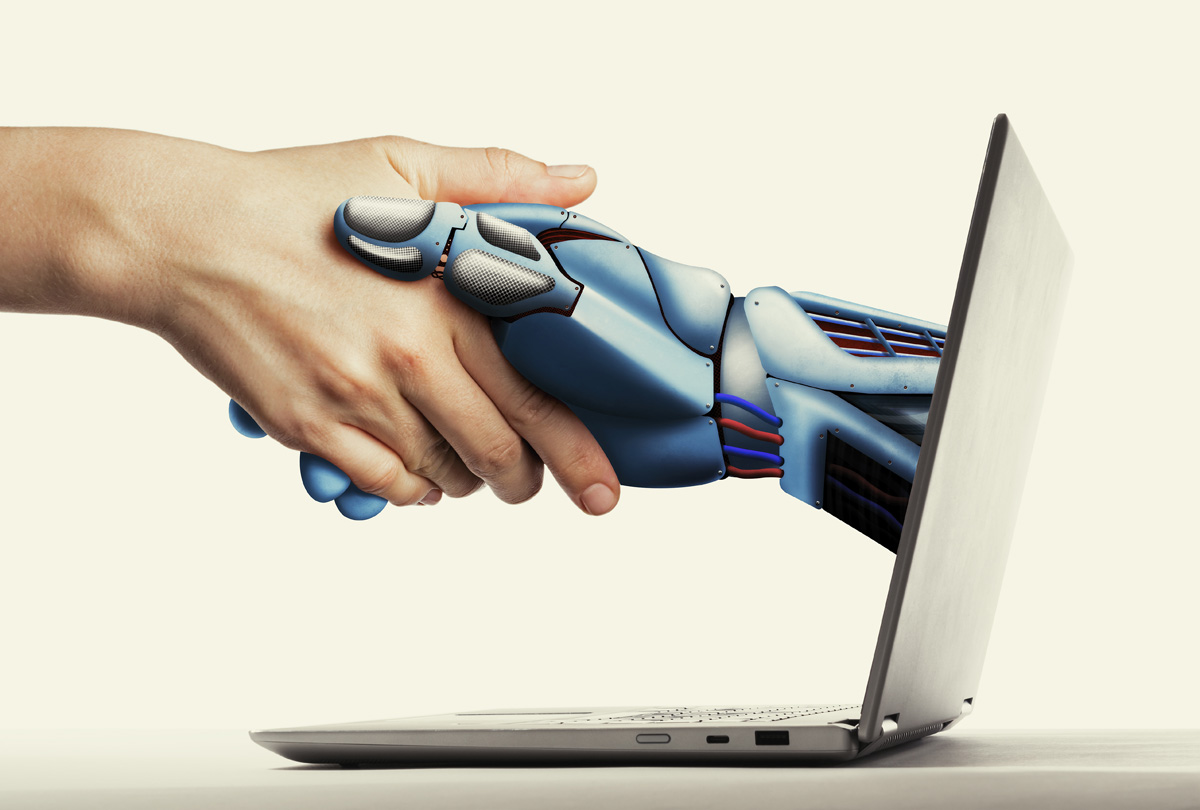The Need for Friendly AI and Ethics
May 27th, 2023by Adedoyin Ajayi
Several years ago, AI would have been thought to be little more than robots walking in choreographed motions, grabbing you a glass of wine from your kitchen, thus saving you the agony of missing portions of your favourite TV show.
However, AI is more, far more than that. Every time you make use of the predictive typing feature on your smartphone, or use autocorrect, you’ve just enjoyed the benefits of AI. You also enjoy the benefits of AI every time you tell Siri on your iPhone to play you your favourite song yet again, or when you direct Cortana to search for a missing file on your Windows laptop.
The use of AI has multiplied rapidly in recent years. It is applied both in everyday life and both across virtually every sphere of human endeavour like education, entertainment, transportation, the military, agriculture, and manufacturing.
Friendly AI refers to AI that has a helpful effect on humanity by resonating with human interests and contributing to the development of humanity. In a nutshell, it connotes AI that poses no risk to humanity and contributes to human development.
Global spending on AI is projected to reach $110 billion annually by next year. Undeniably, as humanity makes deeper inroads into the digital age, more advanced forms of AI would be developed, carrying greater complexity, equipped with bigger capabilities to execute more complicated tasks. A noteworthy example is the development of a tool such as Chat GPT, which can be used to write a thesis in its totality.
AI has numerous positives – for instance, in the corporate world, it aids strategic decision-making. For managers, it serves as a reliable, untiring personal assistant. Employers use it to quicken the hiring process. Understandably, the heavy influence of AI in everyday life has raised questions regarding its use and the laws guiding its production, usage and potential excesses.
It is worth stating that technology, and knowledge at large, is a double-edged sword. The same knowledge that has saved lives through groundbreaking advances in medicine has also contributed to ending lives through creation of weapons. As such, it begs the question, will the beneficial and helpful nature of AI continue far into the future?
Perfect as it may seem, AI is not without its problems. AI can be used to achieve twisted goals. AI is made from algorithms, data from real-life occurrences. People with stereotypes, social biases, and political preferences can use AI to replicate their preferences. We humans create these biases and use AI to grant them phony trustworthiness. Admittedly, AI is not to blame for this, this serves to highlight the importance of ethics in the creation and use of AI. Ethics is that fine line that differentiates benevolence from malevolence.
Additionally, another problem that can emanate from AI is misinformation. AI combs through millions of databases in the search for information. This ease and speed of information delivery can easily be mistaken for accuracy. Yet, AI gleans information from thousands of databases and sites, which might not be all accurate. This is even worse when users lean on information from AI as opposed to professional expertise. Reliance on AI can gradually replace not just professional advice, but also human contact and emotional bonds formed with others.
Subsequently, this has led to a clamour for what is termed ‘friendly AI.’ Friendly AI refers to AI that has a helpful effect on humanity by resonating with human interests and contributing to the development of humanity. In a nutshell, it connotes AI that poses no risk to humanity and contributes to human development.
Sci-fi movies like I, Robot, starring Will Smith and franchises like TheTerminator and The Matrix, starring Arnold Schwarzenegger and Keanu Reeves respectively, all depicted dystopian worlds with AI gone rogue (in varying degrees) and humans in a state of fear. Critics however have scoffed at the notion of such occurring in reality, believing a super-intelligent AI to be more fiction than fact.
While I believe that the appearance of super-intelligent AI is still far ahead into the future, there are other dangerous ways in which AI usage can harm us. This can occur not in aggressive and obvious means like violently taking over the world and leaving us scurrying in fear, but in more subtle and insidious manners such as gradually detaching us from the bonds we share with others, reducing our need for human contact and relying more on AI rather than human judgment.






